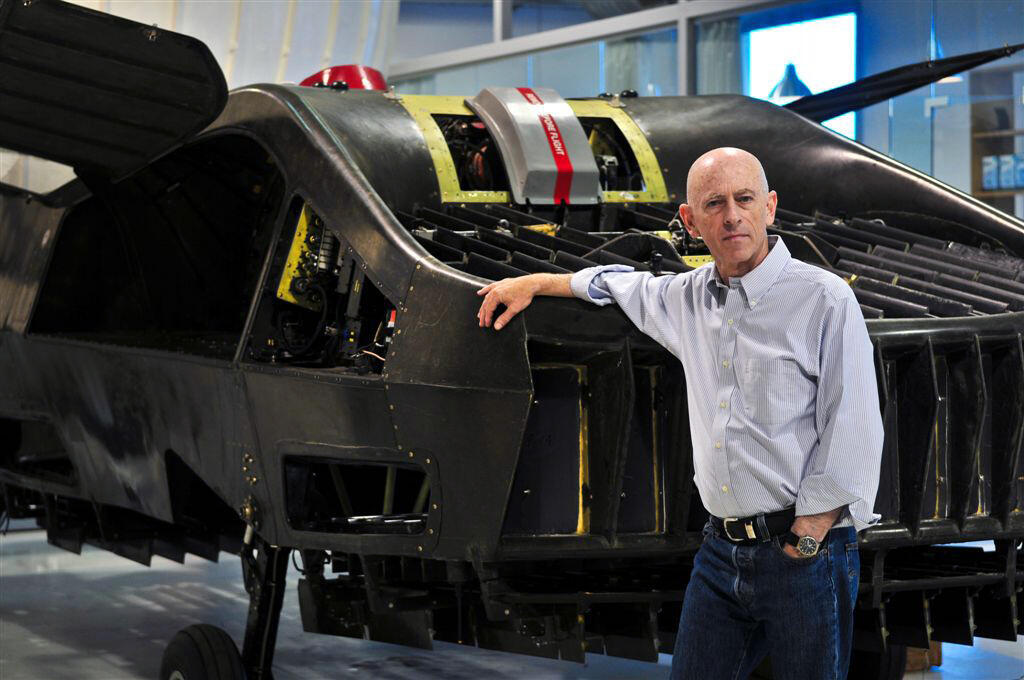
War of the labor market: ChatGPT vs Juniors
The artificial intelligence tools that exist today are already changing the job market as they are able to perform tasks performed by workers at the beginning of their career and thus threaten to replace them. Nevertheless, for now it seems that juniors are not in danger, with a new study showing that they are actually the main beneficiaries of the use of AI at work
Graphic design, content writing and even programming - today's AI systems know how to perform tasks that can replace employees especially when complicated decision-making or new product development is not required. Therefore, it seems that the first workers who are in danger of being replaced by artificial intelligence are the workers who today perform these jobs while they learn, gain experience and become more professional - the juniors. The twist in the plot is provided by those same artificial intelligence systems since they are also able to shorten the learning and training time and give the juniors an advantage.
"People are the engine behind a company. The juniors are a tremendous workforce, they come with contemporary knowledge and a lot of energy. They are a growth engine for the company, but they arrive without sufficient knowledge to develop products and it takes them several years to learn the profession and develop," says Dr. Rafi Yoeli, a lecturer in artificial intelligence at the School of Continuing Education at the Technion. "There are AI tools within the organization which are designed to preserve the knowledge of people who have retired or have advanced to management positions, and these systems serve as mentors for the younger people. These systems include 70-80% of the expertise of the person who left. There is a revolution here within the organization that will allow a junior to take on a project and act as if they have years of experience and knowledge."
According to him, not only will organizations not give up on the juniors because of the introduction of artificial intelligence tools, but they will lead the assimilation of the new technologies.
"Such integration of new AI technologies among the company's employees requires managers to deal with new variables in a space that is not yet familiar to them or their employees," says Aviv Hooker, CRO and co-founder of Faddom, a company that develops software that maps hybrid IT infrastructures, focusing on business applications and the impacts of changes in IT architecture. "Such an integration process requires a strategy that examines how these innovative technological capabilities can be utilized to gain an advantage over the competition. In this environment, it is often possible to harness the juniors. These young employees who are more connected to technology and are also considered a cheaper workforce can examine these tools and determine how to properly integrate them within the organization."
Just last week it was revealed that IBM will freeze the hiring of 7,800 employees, as their tasks can be completed by artificial intelligence. According to CEO Arvind Krishna, hiring will be slowed or frozen mainly in back office departments such as human resources. Krishna also said that 30% of positions that do not require meetings with clients could be replaced within five years. IBM's announcement may be populist and an attempt to ride the AI wave, while the real reason for reducing the workforce is the economic crisis and the crisis in high-tech in particular. The same crisis that led to mass layoffs in small and large companies and also reached Facebook, Amazon, Microsoft and Google. However, it is nevertheless clear that we are facing far-reaching changes in the employment market.
There is quite a bit of irony in the fact that it was IBM that was a pioneer in the development of AI tools that is announcing that it will replace potentially 7,800 of the company's employees with machines.
"About a decade ago, IBM developed Watson, an artificial intelligence software that allows even inexperienced and young doctors from Africa, who do not have much access to Western medicine, to be able to make a diagnosis like the best doctors in New York. What is new today is that artificial intelligence not only performs an effective search in information databases but creates and thereby helps in assisting the creative skills of employees," says Prof. Avigdor Gal from the Faculty of Data and Decision Sciences at the Technion.
According to Gal, generative artificial intelligence is entering creative fields and therefore workers in these positions feel threatened. Studies also show that AI can replace and improve inexperienced workers in various fields. "Artificial intelligence creates a competitive job market of a new type. A market where success does not necessarily depend on experience but on the realization of the ability to utilize the technology," says Gal. "Juniors will be able to successfully compete with those with experience and in fact the overall level of the entire market in terms of creativity and products will rise and we will have a more efficient and advanced labor market."
"Just as the introduction of the use of computers to schools enabled a transition to teaching more abstract subjects, and just as the industrial revolution enabled a transition to the production of more sophisticated products, so the artificial intelligence that will be created will upgrade the job market and open up more fields to juniors that until now were closed to them due to lack of experience," says Yair Snir, Managing Director of Dell Technologies Capital Israel and Europe.
Juniors will remain in companies, but what will change will be their assignments. "The introduction of the new technology will see the machine do many things that people used to do manually. The goal is to create more productive organizations that manage to generate more value within the existing resources," says Snir. "The tasks of the organization will always be divided between the juniors, the seniors and those in between. The level will rise and it is already happening."
The implementation of the AI systems will lead to internal organizational evolution, says Snir. The integration will start with very simple tasks that someone will have to control. In the same way that there is a training period for a new employee, the machine will also be given time to learn. "The price of integrating the machines may actually be higher than estimated, but in the end there will be a rearrangement of tasks that are technical and the machine can perform and tasks that it cannot."
Flesh and blood juniors
When new employees start working in a company they have to learn, experiment and fill in gaps. Many times, because they are new to the organization, they are uncomfortable asking questions and yet, they need knowledge to move forward and be effective. Now, when juniors have access to artificial intelligence tools - the picture is changing. They don't have to ask their senior employees questions. They can turn to AI tools.
"Instead of a junior asking a colleague or manager, or spending a lot of time researching a problem or question on the Internet, with ChatGPT they can get an answer in seconds. Our juniors in the research team use it for initial assistance in writing code, and in the marketing team they use it to help answer technological questions, in writing content - such as proofreading, improving English, or drafting drafts," says Liat Dvir, Chief People Strategy Officer at Ermetic.
The AI tools that exist today are already changing the job market. Despite the threat, as of now, the juniors do not seem to be in danger. On the contrary, they are the main beneficiaries of the use of artificial intelligence at work. A new study of workplaces using artificial intelligence tools designed to improve the work of customer service personnel found that the use of AI especially helped the new or inexperienced employees.
A study by the U.S. National Bureau of Economic Research (NBER) found that AI tools improve work efficiency especially for new hires. The study examined customer service personnel's use of an AI chatbot and found that employees with two months of experience performed their jobs similarly to employees with six months of experience using the AI. Learning time has shortened.
The authors of the study concluded that the artificial intelligence tools help inexperienced employees to communicate with customers like experienced employees. What's more, the study found that juniors with less than half a year of experience became more productive and were less likely to leave their jobs after using the AI tool. For the more experienced workers, the artificial intelligence tools were much less helpful in their work.
At Sisense, for example, they implemented an AI plugin into the developers' work environment called CoPilot and reported an improvement of between 30-50% in productivity. According to Eitan Sofer, VP Engineering at Sisense: "This is especially dramatic for the juniors who fill in knowledge and experience gaps using AI tools. The meaning here is enormous, because the juniors can actually learn faster from the experience of others. If, for example, they write code, they are exposed to agreed sources that 90% of the developers agreed on. These tools are relevant for juniors in all areas - juniors in the product management field at the company recently started using advanced AI tools like ChatGPT for writing characterization documents and marketing content that usually takes a long time to do. The products have proven to be of very high quality and saved very valuable work time. Similar to switching to using Waze versus maps, the danger of using these tools too much is losing the independent ability to develop code in cases where it is required."
The danger for an organization using an AI tool is a dependence that will eventually cause a loss of control over decision-making. To prevent this situation, explains Snir, the intention is to create a system of checks and balances.
Although not for reasons of retaining capabilities or losing control, Samsung announced this week that it will prohibit employees from using generative artificial intelligence tools. The company is concerned about how services such as ChatGPT and Google Bard store user data.
In other organizations, the technologies are adopted and the young workers are the ones who lead the trend. "At the same time as the beginning of my role as the director of Elad's studio, we also started experimenting with AI tools," says Netanel Kosovsky, Head of Netcraft at Elad Software Systems. "They were quite experimental at the time but slowly improved. Those who especially adopted those tools are our younger employees who make up 75% of the team. They are the ones who test them and then they are naturally brought to the older and more experienced team, so their role in adopting the new technologies is very important and they lead us to change and innovation. However, I don't see AI as fundamentally changing the job market. I see it as a trend like many trends I've experienced during my career."
















